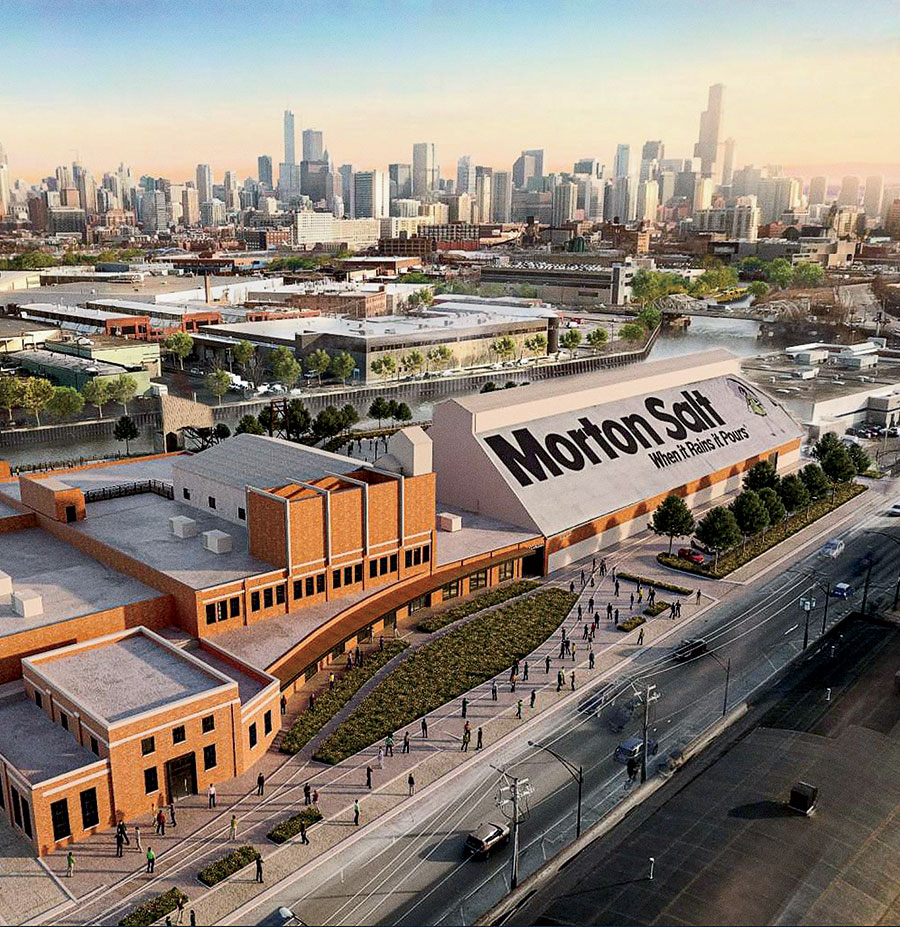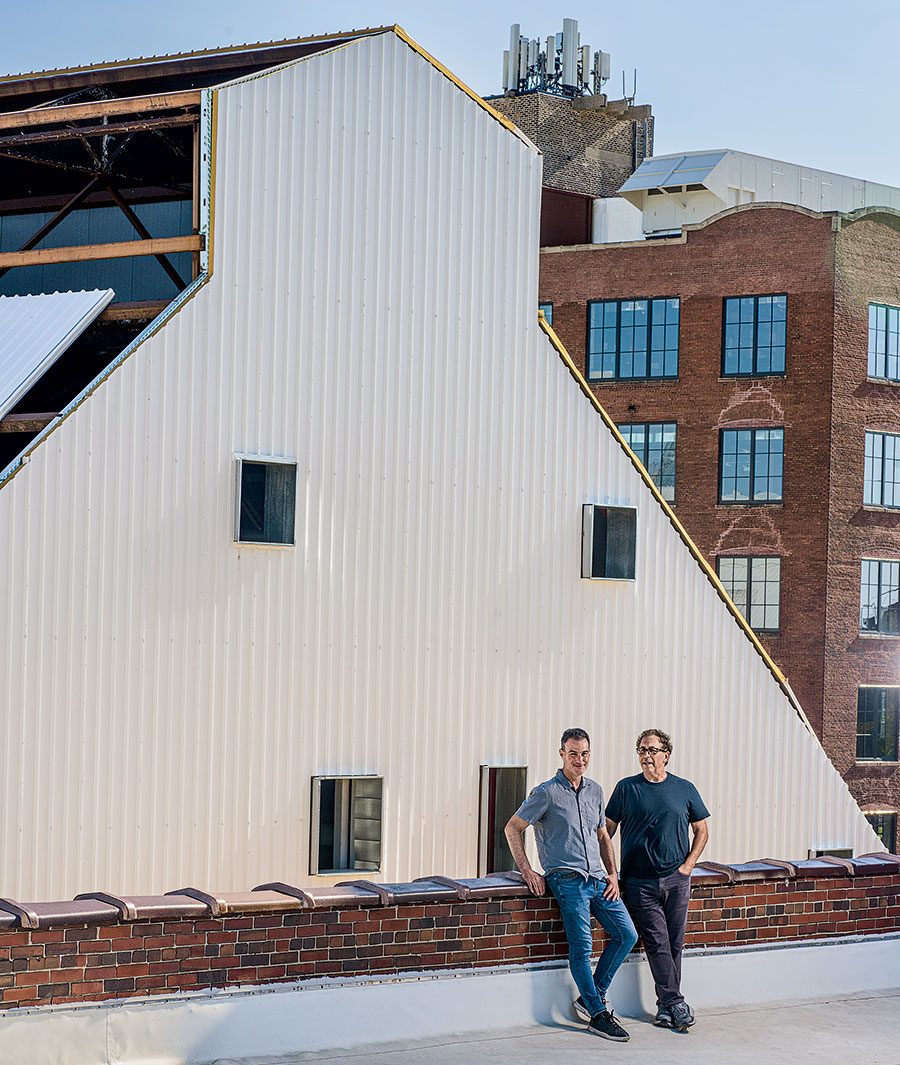For years, Bruce Finkelman looked at the massive Morton Salt sign above Elston Avenue with a sense of curiosity. “This all started with a simple question,” he says. “What’s going on in there?” Now Finkelman, managing partner of 16″ on Center — the hospitality collective behind spaces like the Promontory in Hyde Park, Longman & Eagle in Logan Square, and Beauty Bar in Noble Square — is providing a new answer.
Originally built in the 1920s, the old packaging and warehouse facility across the Chicago River from Goose Island reopens its doors this month to welcome music fans as the Salt Shed. It’s a massive $46 million overhaul of the 4.2-acre site that Morton sold in 2017. But the venue — which runs along a two-block stretch of the river between North Avenue and Division Street and will accommodate around 4,000 patrons — will retain a sense of its history, with portions of the salt conveyor system still hanging above the entrance. Outside, a north-facing stage framed by the steel of the old building will give crowds sweeping views of the downtown skyline behind it. And the Morton Salt sign that caught Finkelman’s eye will remain, but with a fresh paint job.
Jake Samuels and Brent Heyl, codirectors of music for 16″ on Center, booked a lineup for August and September that skews toward indie rock and Americana and features a range of artists they have worked with on smaller stages at the company’s Thalia Hall, Empty Bottle, and Space. The Salt Shed opens August 2 with a show headlined by local percussionist Makaya McCraven and British jazz group Sons of Kemet; other performers across the next several weeks include Fleet Foxes, Andrew Bird, Courtney Barnett, and Jason Isbell. Some of the shows have already sold out.

The music is the main draw, but there will be plenty of action away from the stage, too. “We want to change the way people go to concerts,” says Craig Golden, Finkelman’s business partner. “It’s going to be an experience where loads of different things are happening, and there are reasons to come early, stay late.” One gambit is a premium-level ticket option (about twice the price of general admission), which includes a VIP lounge and a private bar with cocktails curated by the folks at Moneygun, another 16″ on Center spot. The environment will be what Finkelman describes as a fairground — albeit one that sounds a bit more upscale than your typical midway.
A craft brewery has plans to set up shop in the old garage, next to the site’s entrance. Restaurants and shops — Finkelman and Golden have been working to attract a range of local makers — will occupy spaces inside the old packaging building, in addition to what seems like a sprawling maze of bars throughout the entire complex. An exclusive, rentable private event space dubbed the Clubhouse will sit atop one of the former packaging buildings, with a garage door that opens to the roof. Furthering the family-friendly fairground ethos: Kids are welcome at shows, too. In fact, those under 4 get in free.
The first two months will lay the foundation for a plan to make the Salt Shed an everyday attraction and bolster a neighborhood that has lacked much of a draw beyond car dealerships. “It’s going to be a place that brings people together for all kinds of experiences,” Finkelman said. “In the morning, maybe you can go to a yoga class or a farmers’ market. Maybe you come for lunch at a food truck or swing by for a beer at the brewery. And in the evening, you can see a special show.”
While the lineup at presstime concludes on September 24 with an appearance by Death Cab for Cutie, the Salt Shed won’t have such a winter hibernation in the future. An indoor stage is set to open in 2023, with plans for ever more diverse programming. “We are looking at this as a real evolution,” Samuels says. “The summer shows are the first piece of it.”



